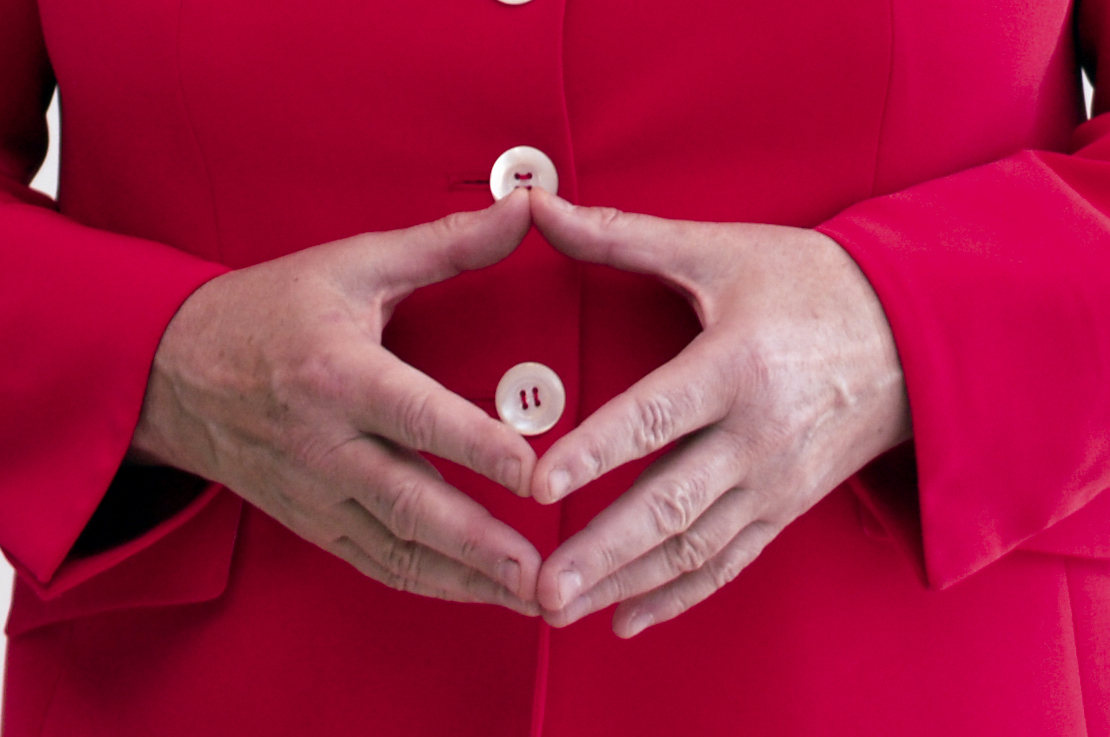
MERKEL’S CONUNDRUM
German president to meet with Social Democratic Party head

Today, German President Frank-Walter Steinmeier will meet Social Democratic Party (SDP) leader Martin Schulz at Bellevue Palace. The meeting will serve as a last-ditch attempt to urge Schulz to reconsider his party’s refusal to form a “grand coalition” with Chancellor Angela Merkel’s conservative bloc.
Unable to form a government, Merkel favours new elections over forming a Greens-backed minority government, but recent polls suggest similar results to September’s vote. A new election would likely strengthen the far-right Alternative for Germany.
Despite initially ruling out becoming a “stop gap” for the conservatives, SPD parliamentary head Andrea Nahles stated that “no one” wants fresh elections. Nevertheless, Schulz will not budge, and fresh elections, whilst probable, won’t be possible until mid-2018.
Should President Steinmeier invite Ms Merkel to form a minority government, the chancellor would need to navigate garnering legislative support on a case-by-case basis, giving minor parties a larger profile. She would also be pressed to change some controversial policy stances, like immigration. Indeed, what happens today could have a profound impact on the future of Europe’s biggest economy.
THE WAY FORWARD
Australian government to release foreign policy strategy

In Canberra today, Australian Prime Minister Malcolm Turnbull and Foreign Minister Julie Bishop will release the government’s first foreign policy white paper in 14 years.
Outlining the country’s foreign policy outlook for the next decade, the paper will focus on humanitarian spending, furthering Australia’s free trade agenda, maintaining peace in the Indo-Pacific region and preserving the international rules-based order.
The paper comes amidst uncertain times as tensions over North Korea’s nuclear program remain high. Moreover, US leadership has waned under its idiosyncratic President Trump and Chinese nationalism is rising under the increasingly authoritarian President Xi Jinping.
The recent resuscitation of the quadrilateral strategic dialogue, which includes Japan, India, Australia and the US, indicates the country’s aims to take a more active balancing role against China.
All attention will be on how the government aims to navigate its relationship with the two great powers and define its leadership role in the Pacific.
POSTED AND DIVIDED
French and Polish leaders discuss European labour reforms

French President Emmanuel Macron will sit down with Polish Prime Minister Beata Szydlo to discuss the EU’s posted worker reforms, which aim to tighten rules around low-wage labour entering higher-wage jurisdictions.
A hot topic issue, posted workers have generated concern among working-class French—a sentiment captured by Marine Le Pen earlier this year. Macron is determined to address the practice of using low-cost workers from elsewhere in the Union to undercut the French labour market in a bid to demonstrate that the EU can work for everyone, particularly those who don’t support his pro-European platform.
Mr Macron has his work cut out for him. Today’s discussions come amid significant tensions between the EU and Poland. Over the weekend, European Council President and former Polish PM Donald Tusk tweeted that Warsaw’s policies were akin to a “Kremlin plan”.
This heated exchange is a symptom of deep divides. Poland and Hungary are at the vanguard of a group of states that are increasingly Eurosceptic. If the victor of Czech elections, Andrej Babis, is able to form government, Prague may follow them.
Posted or not, it seems there’s no end in sight for a divided Europe.
HUMAN RIGHTS TRADE
EU to vote on controlling export of dual-use cyber tools

Today, Europe’s Parliamentary Trade Committee will vote on export control reforms that regulate cyber technologies with the potential to undermine human rights.
Part of the EU’s ‘Trade for all’ strategy—which emphasises human rights, responsible business practices and fair and ethical trade– the proposed reforms introduce a targeted catch-all clause in the EU’s export regime on surveillance technologies.
Reform comes on the back of revelations that BAE, Britain’s largest arms dealer, sold mass surveillance technology to former Tunisian President Ben Ali—the first dictator toppled in the Arab spring—and at least six other Middle Eastern regimes.
Organisations will be obliged to apply for export licences if they suspect a product may be used for violating human rights at its final destination. Implementation and authorisation will be managed by member states that will track and publish annual data on licensed exports.
An amended bill is expected to pass muster today. EU representatives will then need to negotiate a compromise with individual member states. Negotiations will likely centre on the loosening of encryption technology regulation, on which states have an iron grip.

